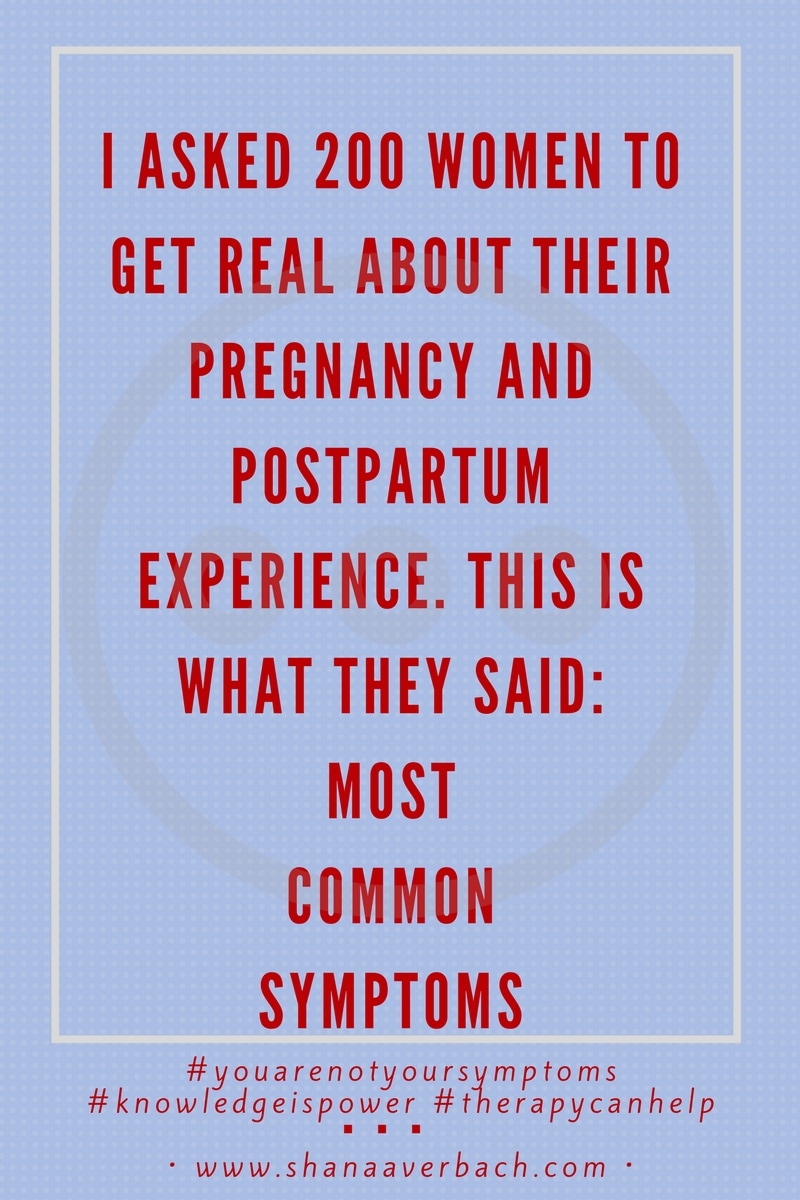It's data time! If you're just tuning in, last year I created an informal survey to collect information about real moms' real emotional experiences with pregnancy and postpartum life. If you're a truth seeker and want these insights sent right to your inbox, sign up here.
Comments are closed.
|
Archives
September 2019
Categories
All
|
| Copyright © Shana Averbach, LMFT 2024. All rights reserved. | 919 Irving Street, Suite 104 San Francisco, CA 94122 | 415.963.3546 | San Francisco Therapy, Counseling, and Resources for Women - Pregnancy Support, Motherhood, Postpartum Adjustment |

 RSS Feed
RSS Feed